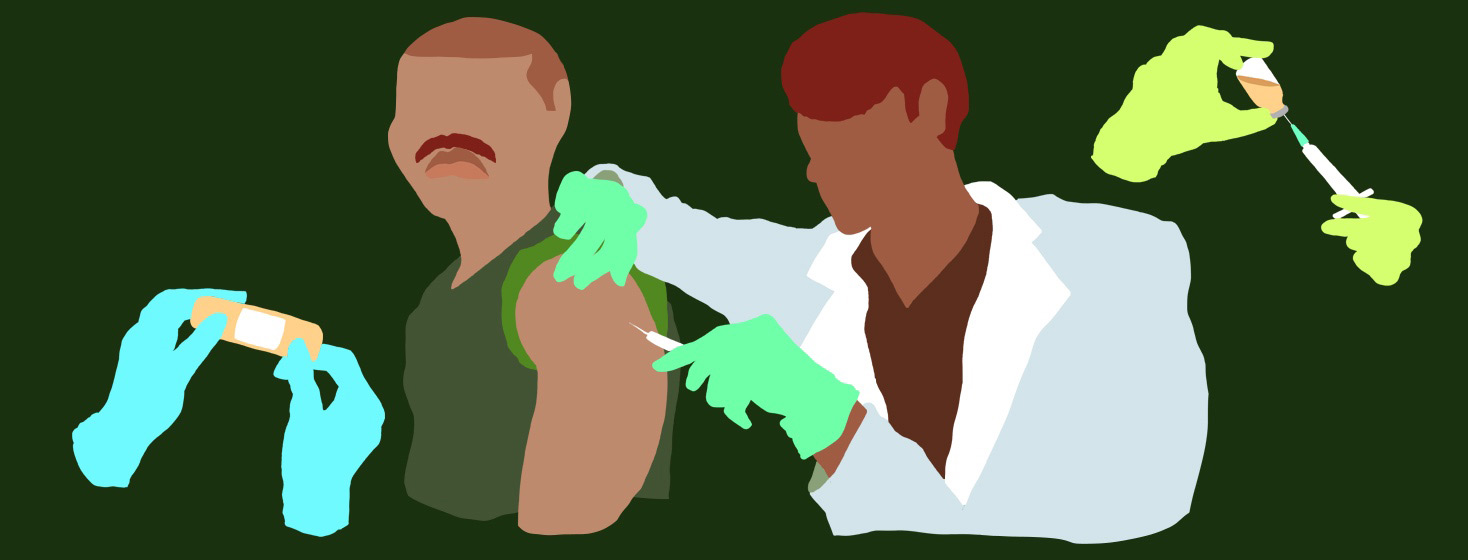Vaccines and NMO
Vaccine safety and efficacy have been topics of debate for a long time. This is especially true for people with pre-existing medical conditions or those who are on immune system-weakening drugs. For people with neuromyelitis optica spectrum disorder (NMO), there are several things to consider when it comes to vaccines.
Developing NMO after a vaccine
NMO is not thought to be caused by vaccines. However, it is not uncommon for NMO to develop after the immune system is activated. This is often after an infection. The immune system is also activated after a vaccine is given. This immune system activation can “unmask” NMO in someone who was already susceptible to developing it.1-3
Experts are not sure what exactly causes a person to be at risk for NMO. It is thought to be a mix of genetic and environmental factors. Several cases of NMO that developed shortly after a vaccine have been reported. However, in some of these cases, there were other factors present that could have led to NMO.1-4
Overall, experts believe it is the immune system responding to a vaccine, infection, or another stressor that leads to NMO. Those who are diagnosed with NMO after a vaccine were likely to develop the disease at some point, with or without a vaccine.2,3
Risk of relapse after vaccines
Since immune system activation can lead to the development of NMO, it can also cause relapses. This has led many to question if vaccines increase the risk for NMO relapse. More research is needed. However, one study looked into this potential link.3
The study involved people with NMO in the United States, Colombia, and Germany. It looked at relapse rates 1, 2, and 3 months after a variety of different vaccines. These rates were compared to relapse rates not after vaccines. The vaccines studied were all routine vaccines, including:3
- Flu
- Pneumococcal
- Tetanus, diphtheria, and pertussis (Tdap)
Overall, the researchers found an increased risk of NMO relapse after vaccination for those not on immune system-suppressing therapy. There was no increased risk of relapse for those with NMO on immunotherapy. This means undergoing treatment for NMO at the time of vaccination may help decrease relapse risk.3
Vaccines and a weakened immune system
In the same study, experts also found benefits to vaccination. Those who were on immunotherapy and received routine vaccinations had lower relapse rates overall. Not being vaccinated was linked to more relapses, even for those on therapy. This may be related to preventing future immune system activation. For example, getting an infection like the flu may lead to a relapse of NMO. However, preventing this infection with a vaccine can help lower the risk of a relapse.3
Another concern with vaccines in NMO is immune system suppression. Vaccines require a strong immune system to develop protection. If a person is on immunotherapy drugs, their immune system may create a weaker response to a vaccine. However, having a suppressed immune system can lead to a more severe infection with serious consequences. Overall, many doctors agree that having some protection may be better than no protection at all.1-3
Are there any vaccines someone with NMO should not get?
Certain vaccines may not be recommended in some situations. For example, live vaccines cannot be given to people with suppressed immune systems.2
Talk with your doctor about which vaccines you are able to receive and the best timing for them.2

Join the conversation